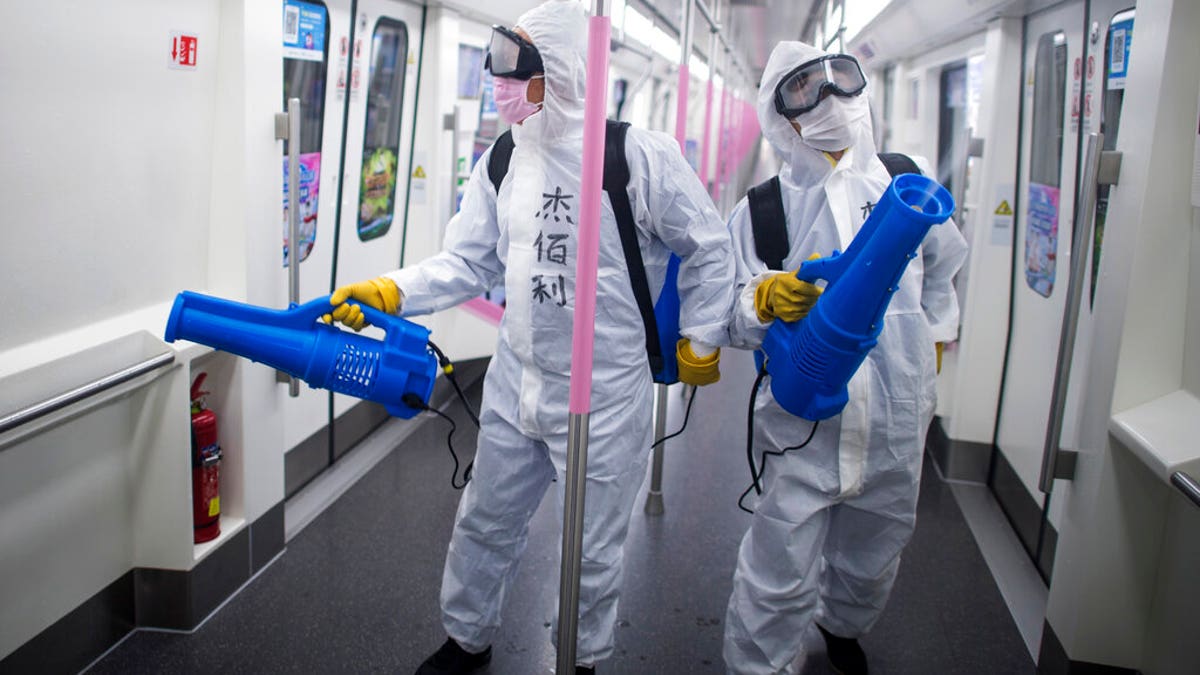'Second wave' of coronavirus could come if Wuhan ends social distancing too early
A new study has suggested that if China lifts its social distancing measures too soon, it could result in a 'second wave' of coronavirus.
Get all the latest news on coronavirus and more delivered daily to your inbox. Sign up here.
A new study suggests that ending social distancing too soon in Wuhan, China, where the novel coronavirus outbreak started, could cause a "second wave" in the summer.
The research, published in The Lancet Public Health journal, notes that keeping the social distancing measures in place until early April could delay the "second wave" until early October. If the ban were lifted too soon, it could happen as soon as August.
"The unprecedented measures the city of Wuhan has put in place to reduce social contacts in school and the workplace have helped to control the outbreak," said the study's lead author, Kiesha Prem, in a statement. "However, the city now needs to be really careful to avoid prematurely lifting physical distancing measures, because that could lead to an earlier secondary peak in cases. But if they relax the restrictions gradually, this is likely to both delay and flatten the peak."

In this March 23, 2020 photo released by Xinhua News Agency, workers disinfect a subway train in preparation for the restoration of public transport in Wuhan, in central China's Hubei province. China's health ministry says Wuhan has now gone several consecutive days without a new infection, showing the effectiveness of draconian travel restrictions that are slowly being relaxed around the country. (Xiao Yijiu/Xinhua via AP)
In their observations, the researchers found that if the measures were lifted in early April, it could reduce infections by 24 percent through the end of the year. Other scenarios were also modeled as part of the research.
China recently announced it would lift the lockdown on Wuhan, a city with more than 11 million residents, on April 8. Fox News previously reported that travel restrictions were relaxed in the city.
Though there is currently no known specific medicine to treat the novel coronavirus, it's unclear whether the researchers believe a "second wave" is inevitable. Fox News has reached out to Prem with a request for comment.
The researchers noted their study could not be directly applied to other countries, due to specific calculations relating to the world's most populated country. However, one of the study's co-authors, Yang Liu, said that social distancing is beneficial no matter the country.
"Our results won't look exactly the same in another country, because the population structure and the way people mix will be different," Liu added. "But we think one thing probably applies everywhere: physical distancing measures are very useful, and we need to carefully adjust their lifting to avoid subsequent waves of infection when workers and school children return to their normal routine. If those waves come too quickly, that could overwhelm health systems."
The study was funded by the Bill & Melinda Gates Foundation, as well as the National Institute for Health Research, Wellcome Trust and Health Data Research UK.
CLICK HERE FOR COMPLETE CORONAVIRUS COVERAGE
President Trump has suggested that he would like to open the U.S. by Easter Sunday, April 12.
However, at a Wednesday press conference of the coronavirus task force, Trump said that he would consult with his advisors, including Dr. Anthony Fauci and Dr. Deborah Birx, on the issue, adding portions of the country are ready to be opened now, but others will not be ready by Easter.
On Wednesday evening, the District of Columbia became the latest part of the country to shut non-essential businesses, announcing they would be closed through April 24.
In total, 26 states have closed non-essential businesses across the country, including Kentucky, Ohio, New York and New Jersey.
As of Thursday morning, there have been more than 480,000 reported cases of COVID-19, including at least 69,000 in the U.S.
Fox News' Ashley Cozzolino contributed to this story.





















